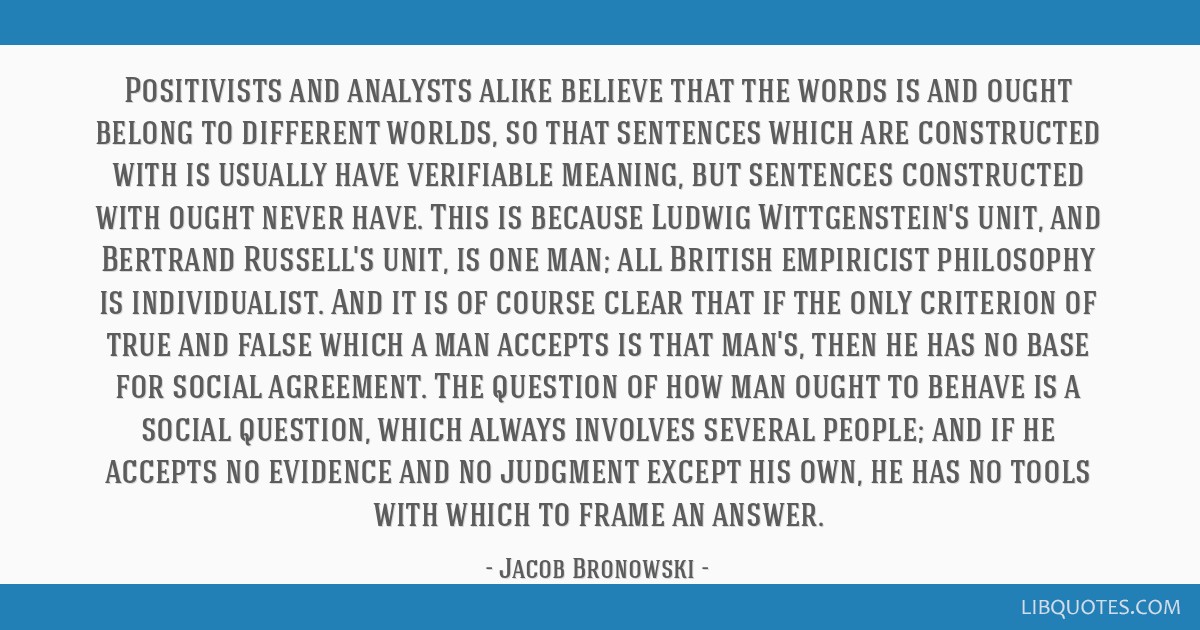Positivists and analysts alike believe that the words is and ought belong to different worlds, so that sentences which are constructed with is usually have verifiable meaning, but sentences constructed with ought never have. This is because Ludwig Wittgenstein's unit, and Bertrand Russell's unit, is one man; all British empiricist philosophy is individualist. And it is of course clear that if the only criterion of true and false which a man accepts is that man's, then he has no base for social agreement. The question of how man ought to behave is a social question, which always involves several people; and if he accepts no evidence and no judgment except his own, he has no tools with which to frame an answer.
Part 3: "The Sense of Human Dignity", §3 (p. 56) - Science and Human Values (1956, 1965)























